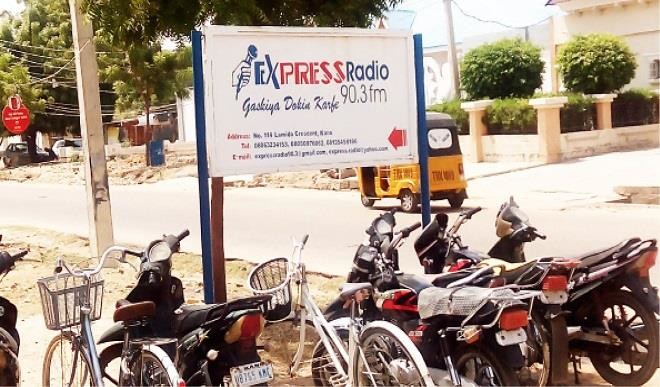Seasons of low revenues for Kano FM stations
Even after the passage of election campaigns, radio stations, particularly the Frequency Modulation (FM) stations, usually continue to enjoy massive patronage from politicians who want to get their messages across to their supporters. However, since the current economic recession in the country set in, private FM stations in Kano have been feeling the pinch of […]


Even after the passage of election campaigns, radio stations, particularly the Frequency Modulation (FM) stations, usually continue to enjoy massive patronage from politicians who want to get their messages across to their supporters.
However, since the current economic recession in the country set in, private FM stations in Kano have been feeling the pinch of a fierce cash crunch that has seen their revenues declining dramatically.
In the last decade, a variety of private FM stations such as Freedom Radio, Rahma Radio, Express Radio, Wazobia Fm and others have sprouted in Kano to give new perspectives to politics and current affairs as well as make profits.
And they have largely succeeded in earning large audiences, advertisers and sponsors who helped in consolidating their existence, until recently, when the scourge of economic recession is threatening to snuff life out of them.
Our correspondent, who visited some of the private radio stations in the city, noticed that apart from staff members, the stations looked deserted unlike in the past, when the number of people who besieged the stations literally turned them into ‘markets’.
It was learnt that the situation has negatively affected the FM stations’ ability to maintain the vibrance of their political programmes in the face of stiff competition with one another.
At Express radio, one of the latest FM stations in the city, the Head of Marketing, Lamin Baba Kusa said the station used to conduct live coverage of political events almost every week, when business was good, but presently, such events only come once in two months.
“In the heat of political campaigns, we often turned back a lot of money because our slots had all been paid for. But that is no longer the case. Now we get five slots a day if we are lucky and most of those slots are placed by revenue generating agencies of the government,” he said.
Baba Kusa added that even the political programmes being sponsored by politicians who came on a daily basis, now come once in five days.
On whether the ubiquitous use of social media contributed to the drop in revenues, Baba Kusa disagreed; saying since radio often targets non-literate audience, the influence of social media may not be significant.
Similarly, Shamsu Abdullahi Kademi, the Senior Commercial Officer of Rahma Radio, said the revenue generation at the station has taken a tumble as a result of infrequent patronage from the government and drop in rate of advertisement.
He said the government rarely sponsors political programmes now, leaving only opposition politicians to come and make criticism on issues they feel aggrieved on.
“And the government rarely issue rejoinders on such criticisms probably because of lack of funds. Even the opposition politicians usually air their programmes on credit and pay later. The situation has affected everybody,” Kademi said.
He advised that radio stations should take advantage of the economic slowdown to diversify through setting up other businesses that can complement the broadcast stations in times of financial troubles.
Equally, at Freedom Radio, which is believed to be the biggest private FM stations in the state, it was also the same pathetic story of poor patronage and financial challenges.
Speaking to Daily Trust on Sunday, Acting Head of the Station, Alhaji Adamu Ismaila Garki, said all the sources of revenues, including that of political program sponsorship that support the station are drying up.
He said the station had suffered a 40 percent drop in its revenues as a result of the current economic meltdown being witnessed across the country.
“The volume of live coverage of government events has reduced to a drastically low level. Even on the part of businesses we no longer generate enough funds because some companies that were patronizing us have become crippled, some have been closed while a few are struggling to survive. These factors have affected us seriously,” he said.
Garki added that the situation has been compounded by the need to pay salaries to numerous workers as well as maintain equipment all in the face of dwindling revenues.
Suggesting solutions, he advised private broadcast stations to improve the quality of their productions with regard to programming and other innovations that they can explore to boost revenue generation.
“The idea of relying on broadcast for money is no longer a viable option. We have to look into other areas where we can invest to complement our business. This will help a lot,” he noted.
